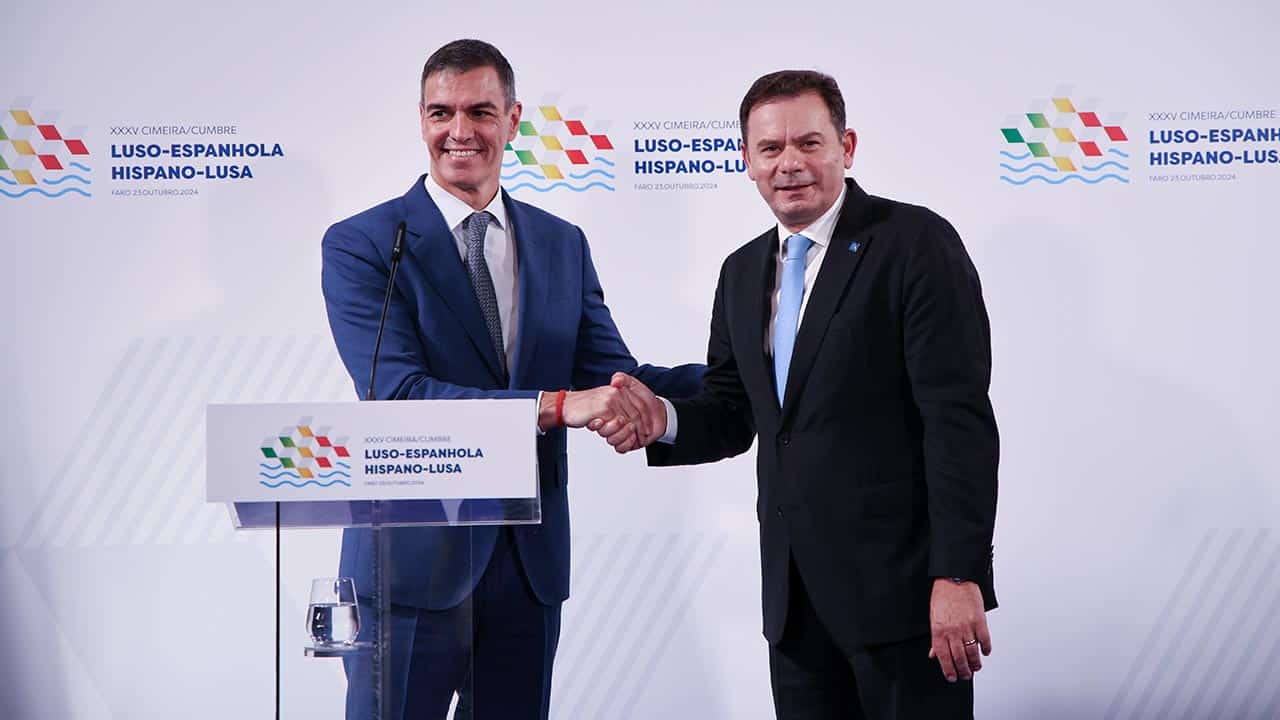Countries agree to build bridges between Alcoutim and Sanlúcar de Guadiana, and between Nisa and Cedillo
Portugal and Spain have formalised agreements for the construction of two international bridges, including the long-promised bridge connecting Alcoutim (Algarve, Portugal) to Sanlúcar de Guadiana (Andalusia, Spain).
The agreements were officially signed during the 35th Iberian Summit, held in Faro, Algarve today.
During the summit, both governments emphasised the importance of the Common Strategy for Cross-Border Development (ECDT), describing it as a “unique and flexible tool.” They pledged to bolster its implementation to improve the “quality of life” and “well-being” of residents in border regions.
In a joint statement, the governments highlighted their excitement over the signing of the agreements, which also include the construction of a bridge over the River Sever between Nisa (Portugal) and Cedillo (Spain). The total investment for these projects amounts to approximately €24 million, with funding secured through the Recovery and Resilience Plan (PRR). The municipality of Nisa is overseeing the River Sever bridge on Portugal’s side, while Alcoutim is responsible for the Guadiana bridge.
In addition to the bridge agreements, the summit addressed broader cooperative efforts under the 2021-2027 Spain-Portugal Cross-Border Cooperation Operational Program (POCTEP). The two countries aim to prioritise projects that “enhance the innovation ecosystem, bolster scientific and technological development, and improve business competitiveness.” Other key priorities include promoting the “blue economy,” conserving natural resources and biodiversity, accelerating climate transition, and improving healthcare access for border populations.
The governments reiterated their commitment to revitalising and innovating smaller municipalities and border villages, highlighting the role of “innovative tourism” in fostering development in cross-border communities. They also announced a two-year extension of the Memorandum of Understanding on the Sustainability Strategy for Cross-Border Tourism (2022-2024). This extension will facilitate collaborative efforts to integrate sustainable tourism into their respective national strategies, specifically Portugal’s Tourism Strategy 2035 and Spain’s Tourism Strategy 2030.
Looking ahead, both governments plan to develop an Operational Plan for 2025-2027 that outlines specific actions and timelines to accomplish the goals set forth in the Sustainability Strategy for Cross-Border Tourism. This plan aims to coordinate initiatives, enhance public engagement, and encourage public-private collaboration to promote investment in tourism destinations and experiences on both sides of the border.
In total, 11 “cooperation instruments” were signed today by the governments of both countries.
Montenegro and Sánchez write letter to France calling for improved railway connectivity
The heads of government of Portugal and Spain also announced plans to write a letter to their French counterpart, Michel Barnier, calling for improved railway connectivity.
Portuguese Prime Minister, Luís Montenegro, stated: “The President of the Spanish government and I will sign a letter addressed to the Prime Minister of France to facilitate the necessary rail connections for transporting passengers and goods between the Iberian Peninsula and Central Europe.”
In addition to rail connectivity, the two leaders underscored the importance of fulfilling energy commitments established between Portugal, Spain, France, and the European Commission. Montenegro highlighted that these energy interconnections cannot be delayed any longer, particularly regarding electrical connections. He remarked, “It is unacceptable that we are constantly advocating for the same issues when they are already formal commitments outlined in solemn documents binding our states.”
Both Montenegro and Spanish Prime Minister Pedro Sánchez expressed their determination to press France and the European Commission to uphold their obligations.
This joint position served as an example of the “excellent bilaterial relationship” that Montenegro said Portugal and Spain enjoy.
“This summit clearly represents the strength of our bilateral relationship, the excellence of relations between Portugal and Spain, both in terms of direct bilateral cooperation and in the multilateral context within Europe and various international organisations,” the Portuguese PM said. He also considered the summit to be significant “in terms of innovation, science, education, and culture,” and stressed the “converging positions” of both countries on most European issues.
“From an international perspective, we are also united by fundamental values in the realm of peace preservation and the guarantee of human rights. Therefore, both Portugal and Spain reiterate their permanent, unequivocal, and continuous commitment to supporting Ukraine, and reaffirm the need for an immediate ceasefire in Lebanon and Gaza,” he highlighted.
Montenegro also stated that both countries are attentive to the “electoral process” in Venezuela and mentioned that he will soon meet again with Pedro Sánchez at the G20 Summit in Rio de Janeiro in November.




















